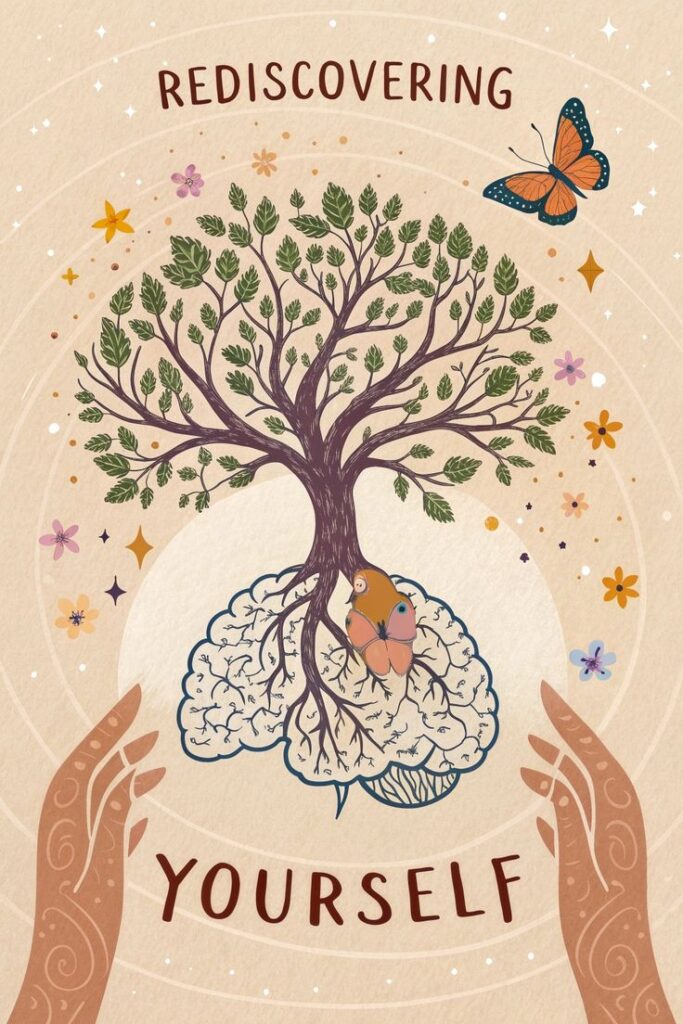
In today’s fast-paced and often overwhelming world, mental health has become just as important as physical well-being. With the constant bombardment of information, stress, comparison, and responsibilities, our minds can easily slip into negativity, anxiety, or emotional fatigue. But what if we told you that your mind can be trained, guided, and supported—just like your body? You have the power to influence your thoughts, emotions, and reactions to build a healthier, more positive mindset.
This blog will serve as a practical and empowering guide to help you consciously direct your mind toward positivity and resilience.
1. Understand the Power of Your Mind
Your mind is not just a passive receiver of information. It’s an active participant in shaping your reality.
Thoughts Influence Reality: The way you interpret events, challenges, and even your own capabilities stems from your thought patterns. Repeated thoughts create mental grooves—called neural pathways—that become your habitual ways of thinking. Self-Talk Becomes Your Identity: Negative self-talk can subtly erode self-esteem, while positive, empowering language builds confidence and a strong identity.
Tip: Start becoming aware of your inner dialogue. Ask yourself, Would I say this to a friend? If not, don’t say it to yourself.
2. Create a Morning Mindset Ritual
Your morning sets the tone for the day. A chaotic start often leads to a disoriented mind. A mindful start cultivates clarity, calm, and purpose.
Try this simple 15-minute routine:
Gratitude (2 mins): Think of 3 things you’re grateful for—no matter how small. Affirmations (3 mins): Repeat positive statements like: “I am calm, capable, and strong.” “Today, I choose peace over worry.” Visualization (5 mins): Close your eyes and imagine your ideal day. Picture yourself navigating it with ease. Mindful Breathing or Meditation (5 mins): Inhale deeply, hold, and exhale slowly. Focus only on your breath.
This small practice rewires your brain to expect positivity and reduces stress hormone levels.
3. Develop Mental Hygiene Habits
Just like brushing your teeth, your mind needs daily maintenance.
Here’s what mental hygiene looks like:
Digital Detox: Unplug from social media for 30-60 minutes a day. Replace that time with journaling, walking, or reading. Information Diet: Limit exposure to negative news or online arguments. Choose content that uplifts or educates you. Declutter Your Mind: Before bed, write down your worries, plans, or to-do lists to release mental load.
Pro Tip: Keep a “brain dump” journal by your bedside. It helps offload thoughts so you sleep more peacefully.
4. Practice Mindfulness in Daily Life
Mindfulness is about being fully present in the moment—without judgment or distraction.
Simple ways to practice mindfulness:
Mindful Eating: Eat without your phone or TV. Notice the taste, texture, and aroma. Mindful Walking: Walk slowly and focus on your steps, the sensation of the ground, and your breath. Mindful Listening: During conversations, don’t just wait to reply. Truly listen.
Mindfulness reduces anxiety, improves focus, and helps you detach from overthinking.
5. Reframe Negative Thoughts
Negativity often comes from distorted thinking. But thoughts are not facts—they’re interpretations.
Common negative thought traps:
All-or-Nothing Thinking: “If I fail once, I’m a failure.” Catastrophizing: “If this goes wrong, everything will fall apart.” Personalizing: “It’s my fault things went wrong.”
How to reframe:
Replace “I can’t do this” with “I’m learning to do this.” Replace “Everything’s going wrong” with “This is one tough moment, not my whole life.”
Use language that empowers growth, not shame.
6. Surround Yourself with Positivity
Your environment shapes your mindset. Be intentional about the people, spaces, and content around you.
People: Spend time with those who uplift, support, and inspire you. Spaces: Organize your surroundings. A clean, calm space reflects and supports a clean, calm mind. Content: Curate your social media feed. Follow motivational speakers, educators, or artists who make you feel good about yourself.
Remember: You become like the energy you consume. Choose wisely.
7. Build Emotional Resilience
Positivity isn’t about ignoring pain—it’s about building strength to face it without crumbling.
How to build resilience:
Name Your Emotions: Don’t suppress them. Say: “I feel anxious right now,” or “I’m overwhelmed.” Regulate, Don’t React: When triggered, pause. Take three deep breaths. Respond later when you’re calm. Practice Self-Compassion: Treat yourself with the same kindness you’d offer to a struggling friend.
Ask yourself:
“What do I need right now—comfort, clarity, or courage?”
8. Engage in Meaningful Activities
When you do things that align with your values and passions, your mental state naturally improves.
Ideas:
Volunteer: Helping others boosts self-worth. Creative Expression: Draw, write, dance, or sing—creativity is therapeutic. Learning: Read or explore a new skill to stimulate your brain positively.
Meaning anchors your mind. Find what makes you feel alive and do more of it.
9. Balance Productivity with Rest
Burnout destroys positivity. Many people chase productivity at the cost of mental peace.
Tips for a healthy balance:
Use the 50/10 Rule: Work for 50 minutes, rest for 10. Take Nature Breaks: Spend time in sunlight or green spaces to reset your nervous system. Prioritize Sleep: A well-rested mind is more resilient and positive.
Rest is not laziness—it’s mental fuel.
10. Speak to a Therapist or Mentor
Sometimes, guiding your mind requires external help. Therapy isn’t just for crises—it’s for growth, insight, and healing.
Benefits:
You’ll learn coping tools and thinking techniques. You’ll gain clarity on root causes of stress or sadness. You’ll feel supported and less alone.
Mentors can also offer valuable life perspective, especially during career or personal transitions.
Asking for help is strength, not weakness.
11. Fuel Your Brain with Nutrition & Movement
Your physical health deeply affects your mental well-being.
Food for Thought:
Omega-3s (in walnuts, flaxseeds, fish) support brain health. Leafy greens, berries, and turmeric reduce inflammation and anxiety. Avoid too much sugar, alcohol, or caffeine—they spike and crash mood levels.
Move Your Body:
Exercise releases endorphins—your brain’s natural mood boosters. Even a 20-minute walk can clear mental fog and enhance focus.
Mind and body are one system. Take care of both.
12. Practice the “3 Positives a Day” Habit
This simple technique rewires your brain to focus on the good.
How it works:
At the end of each day, write down 3 good things that happened—no matter how small.
Example:
“I made someone laugh today.” “The chai was really comforting.” “I completed that task I was avoiding.”
Within a few weeks, your brain will start scanning for positivity naturally.
Conclusion: You Are the Pilot of Your Mind
Guiding your mind to stay healthy and positive is not about perfection—it’s about progress. It’s about choosing intention over reaction, calm over chaos, and growth over guilt. With daily practice, your inner world can become a source of strength, stability, and joy.
Even on tough days, remind yourself:
“My thoughts are visitors. I choose which ones to invite in and entertain.”
Build mental habits that support you, create environments that nourish you, and embrace the journey of becoming mentally stronger—one mindful moment at a time.
